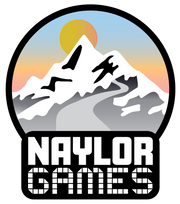I’m pledging my support to the boardgame community as a Mental Health First Aider – a first line support person for mental health. You can contact me at james@naylorgames.com to talk about anything: everything you tell me will be confidential. Organisations interested in using me as a ‘virtual’ Mental Health First Aider for their team should drop me an email.
It’s already a cliche to say – using classic British understatement – that 2020 has not been a good year. I don’t need to re-capitulate why. But one aspect which is only beginning to really dawn on us are the profound and damaging mental health effects it has.
It should not be a surprise to us at all and should have been predicted by every sober thinking person from about March onward. Most of us are living in fear of a serious respiratory infection and watching an endless stream of updates about a worldwide natural disaster unfold. We’re having nearly all face-to-face contact with our friends and most of our loved ones cut off (in some cases, even before they died) and facing the prospect of a decimated economy where we may lose our jobs. An absolutely normal and appropriate human reaction to that is to be angry, depressed, grief-stricken and anxious.
When this does come to an end, many of us will bounce back. Some will even be mentally stronger for it. But many of us will not. The nature of many mental health problems is that, without attention, they can become a vicious cycle of negative emotion and unhelpful behaviours in the face of destructive experiences and worsening symptoms. For people already struggling, these kind of events can be a trigger for a long episode of abject misery or lifelong battle with mental ill health. That’s why early intervention in mental health is so important. Getting people the right treatment for the problems they’re dealing with early on dramatically improves long term outcomes. The hopeful part is this: If people get the support they need, most can make a full recovery from even very serious mental health problems. And for the majority of us, even simple measures can dramatically improve our own mental wellbeing: we can be better than we were before by consciously engaging in a positive way with our own psyche.
That’s why I recently got trained as a Mental Health First Aider. I am providing myself as a resource to help people overcome these challenges in our little corner of the world: boardgames.

What is mental health first aid?
“Mental Health First Aid is a training program that teaches members of the public how to help a person developing a mental health problem (including a substance use problem), experiencing a worsening of an existing mental health problem or in a mental health crisis. Like traditional first aid, Mental Health First Aid does not teach people to treat or diagnose mental health or substance use conditions. Instead, the training teaches people how to offer initial support until appropriate professional help is received or until the crisis resolves.” – Wikpedia
Mental Health First Aiders are becoming increasingly common in large organisations as recognition of the importance of mental health grows. Of course, given the size of most companies in boardgames, MHFAs are few and far between. Few companies will be able to justify the time and resources involved in getting someone trained. In tiny, passion driven outfits there’s always a thousand other things to do! But having someone outside the organisations to fill this role as a free, on-demand resource seems like a workable alternative.
Both the wikipedia entry and US website for the initiative have lots more great information if you want to learn more.
Why am I doing this?
Personally I’ve always been interested in mental health, long before I even experienced many of my own issues with anxiety and long episodes of depersonalisation/derealisation. The mind is an amazing place, and seeing people mentally thrive is something I have always found beautiful and energising. I have a very long term ambition to study to become a psychotherapist, but with this growing crisis, being able to help people with their mental health right now has never been more important. Early indications are not good: Depression has doubled during the pandemic and the London Ambulance service, for instance, are already receiving double the callouts to attempted suicides from last year. This initiative seems like a practical way I can help: By providing my immediate assistance to those in need while directing them onto other forms of long term support; including professional help.
How will it work?
The idea is really simple: If you have a concern about your mental health and wellbeing – or have concern for someone else – get in touch and I will do my best to support you, directing you to what might be the appropriate next steps for you, based on what you want to do.
My current plan is also that organisations can treat me as their own designated Mental Health First Aider as they wish to – letting their people know I am available for their staff and collaborators to speak to. As far as I know, this ‘virtual’ MHFA approach hasn’t been tried before. There may be limitations. I can’t, for instance, be there in an office to proactively watch for warning signs and let people know I am there if they should need it. But I can provide a very similar kind of support when someone does chose to get in touch. This is very much an experiment but I hope it can, at least, be genuinely useful for someone.
I don’t know what the demand for this will look like. If its very substantial, I may need to start enlisting other MHFAs to join me. Equally, it might be few people feel comfortable talking to someone they don’t know too well; and I don’t get many enquiries at all . But I figure, given what’s going, on why not try it? It can only help.
Can you provide professional help or therapy of any kind?
I am not a therapist. I can provide information and give you, hopefully, a fuller understanding of the wide variety of options there are out there. This can include self-help options if you decide you don’t want to take things to a professional. I will listen to you, we can talk things through and I can be a helpful sounding board or listening ear. But I can’t do the job of a mental health professional.
Is everything I or others tell you confidential?
Yes. I will not pass on anything you tell me to anyone else. However, it is my duty to get help and disclose what I have been told if I believe someone is in real danger of harming themselves or others. Outside of such a situation, I will always ask you first if its ok to share some details with people around you, if it sounds like that could help.
I don’t live in the UK, can you help me?
I can provide support to anyone, anywhere. We will need to be organised if the time zone difference is significant, but even that is only a small obstacle. The only major limiting factor is language. I can only provide support in English.
How do I get you to become our company’s designed MHFA?
Just drop me a line at james@naylorgames.com and we can take it from there.
How do I get in touch with you if I need help?
For now, just drop me an email at james@naylorgames.com. Only I have access to that email address. We can set-up a further chat or conversation using any means you feel comfortable with after that or keep it by email; whatever you prefer.
I’m James – don’t be afraid to ask me for help.


Leave a comment